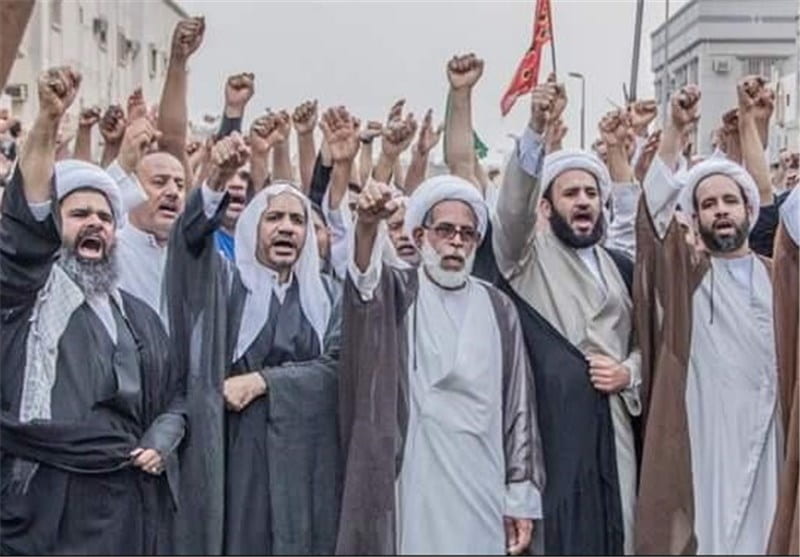
Bipartisan push over human rights in Saudi Arabia comes as China
asserts its geopolitical clout with Riyadh
Saudi Arms Sales: US Senate Resolution
Could Derail Exports to Riyadh
Sean Mathews / Middle East Eye
(March 15, 2023) — A bipartisan pair of US senators introduced a resolution on Wednesday that would require President Biden’s administration to report on Saudi Arabia’s human rights record and possibly cut off all US security assistance to the kingdom, as ties between Riyadh and Washington continue to fray.
Democrat Chris Murphy and Republican Mike Lee drew upon a provision of the US Foreign Assistance Act, which allows Congress to vote to request information on a particular country’s human rights practices.
Senator Lee called the proposal a “simple and fair request” for the State Department to provide more insight into the status of human rights in Saudi Arabia.
“US weapons don’t belong in the hands of human rights abusers,” he said in a statement. “The [American] people and their elected representatives have a right to know the types of activity we are tacitly supporting.”
If the resolution becomes law, the State Department would be required to submit a report on human rights in Saudi Arabia within 30 days or all security assistance automatically stops.
The lawmakers are also invoking a clause within the US Foreign Assistance Act that would allow congress to adopt a joint resolution halting security assistance to Riyadh.
The vote to terminate or restrict security assistance only requires meeting a 50-vote threshold, but as a joint resolution, it must pass both the Senate and House of Representatives and be signed by the president.
Unlike Egypt, which receives the bulk of its US armaments via Foreign Military Financing (FMF), which is when the US subsidises defence contractors’ sales to Washington’s partners, the energy-rich Gulf state purchases its weapons.
The US has about $126bn in active government-to-government sales with Saudi Arabia under the Foreign Military Sales (FMS) system.
Saudi women continue to face inhumane rites.
‘First Autocrats Club’
Saudi Arabia is experiencing an economic boom as a result of a windfall in oil revenue. On Tuesday, two Saudi airlines announced the purchase of almost 80 Boeing commercial aircraft, in a deal the White House said could reach $37bn.
The resolution comes at a time when Saudi and US ties are under strain, as Crown Prince Mohammed bin Salman charts a more independent foreign policy path. Last week, Saudi Arabia agreed to reestablish ties with its arch-rival Iran, in a deal brokered by China.
Current and former US officials who spoke with Middle East Eye were back-footed by the agreement, which some analysts are calling a watershed moment for the region and China’s role as a geopolitical actor.
Aaron David Miller, a former US official who served Republican and Democratic presidents in the Middle East, told MEE that one advantage China had courting Riyadh over the US was a lack of congressional oversight on arms sales and no questions on human rights.
“These guys are all members of the first autocrats club,” Miller told MEE previously.
Biden entered office promising to make Saudi Arabia a “pariah” state for its role in the gruesome killing of The Washington Post and Middle East Eye journalist, Jamal Khashoggi. But more than two years into his administration, the US has vacillated between scolding Saudi Arabia and seeking to mend fences with its longtime partner.
“The administration has not acted on its commitment to re-evaluate the relationship with Saudi Arabia, so it is incumbent on Congress to take action,” Senator Murphy said in a statement.
One of Biden’s first acts after taking office was to release a classified CIA report that concluded Saudi Crown Prince Mohammed bin Salman ordered the killing of Jamal Khashoggi.
In November, however, the Biden administration ruled that the crown prince had immunity from a civil lawsuit over the murder.
Similarly, the administration slammed Riyadh in October over its decision to back an oil production cut that Washington labeled as siding with Russia amid the war in Ukraine. But Biden appears to have backtracked on his pledge that there would be “consequences” for Riyadh. Brent crude prices are down about 25 percent since the Opec+ cut.
If the resolution becomes law, Congress would be informed on matters including, but not limited to: the torture of detainees within Saudi Arabia; the execution of prisoners for non-violent offences; Saudi operations in Yemen; and forced disappearances.
A report published in January by the legal charity Reprieve and the European Saudi Organisation for Human Rights (ESOHR) found that executions in Saudi Arabia doubled since the rise to power of Crown Prince Mohammed bin Salman in 2015.

From 2015 to 2022, there was an average of 129.5 executions per year, according to the report.
Saudi Arabia has also faced bipartisan criticism in Congress for its role in the Yemen war. More than 150,000 people have been killed, including nearly 15,000 civilians, according to an estimate by the Armed Conflict Location and Event Data Project.
A Saudi-led coalition intervened in Yemen’s civil war in March 2015, after Houthi rebels aligned with Iran overthrew the internationally recognised government. UN reports have said that coalition air strikes have killed thousands of civilians, hitting homes and schools.
A truce that began in April last year expired, but the fighting has largely subsided. Yemen now faces a humanitarian catastrophe with millions in the war-torn country at risk of hunger, according to the UN.
Posted in accordance with Title 17, Section 107, US Code, for noncommercial, educational purposes.
